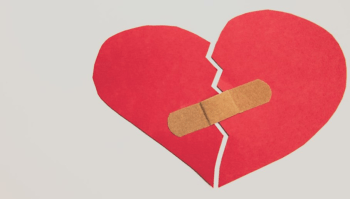Can A Broken Heart Actually ‘Break’ Your Heart?
 When you picture a broken heart, your mind may conjure up a melancholy poem penned to a lost lover, or, an image of a jagged edge cartoon heart split in two. But, a real-life broken heart can actually lead to cardiac consequences. A Texas A&M Health Science Center College of Medicine cardiologist explains the science behind ‘broken heart syndrome.’
When you picture a broken heart, your mind may conjure up a melancholy poem penned to a lost lover, or, an image of a jagged edge cartoon heart split in two. But, a real-life broken heart can actually lead to cardiac consequences. A Texas A&M Health Science Center College of Medicine cardiologist explains the science behind ‘broken heart syndrome.’
“There is still much to be discovered about ‘broken heart syndrome,’” said Gregory Dehmer, M.D., a cardiologist and professor at the Texas A&M College of Medicine. “What we do know, is it appears in individuals experiencing extreme stress triggered by a substantial emotional response—like the death of a loved one, an intense argument or after exposure to a shocking situation.”
Breaking down a broken heart
Scientifically known as stress-induced cardiomyopathy—or takotsubo cardiomyopathy— ‘broken heart syndrome’ can present in healthy individuals with no prior cardiac problems. The most common signs are chest pain, shortness of breath, arrhythmias (irregular heartbeats), and in rare cases, cardiogenic shock syndrome (when a suddenly weakened heart can’t pump enough blood to meet the body’s needs).
Dehmer explained there are several theories about why this happens. “The most prominent explanation is that ‘broken heart syndrome’ is caused by the release of large amounts of stress hormones (epinephrine, adrenaline) into the bloodstream,” he said. “This sudden, surge of stress hormones can have a significant negative impact on the heart.”
Continue reading on Vital Record.
This article by Lauren Thompson originally appeared in Vital Record.





